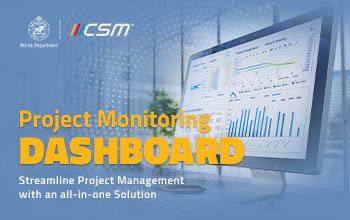.jpg)
When Shruti failed to show at work for the second consecutive day, the alarm bells started ringing. Neither Shruti was in a habit of unwarranted absences nor had anyone seen her as distraught, just before her absence. A concerned and detailed enquiry revealed that Shruti was in a state of mental imbalance and has locked herself in her 1bhk flat where she lived alone.
Shruti is not alone in her predicament. In today's fast-paced world, mental health has become a crucial component of overall well-being and its impact on the workplace culture cannot be overstated. Anxiety, stress and depression are widely recognized as the top mental health challenges faced by Shruti and others in the modern workplace. The first step for an manager/employer is to recognize the early warning symptoms and then understand their why to assist employees nip them at the bud and prevent more proliferation.
Recognition of the symptoms come from absenteeism – like Shruti, reports of change in behavior, work changes and sometimes physical symptoms as well. Once a cause of concern is identified, it is required to create a culture of openness to discuss, and if required consult with experts. CSM envisages 5 major reasons to mental wellbeing or the lack of it – 1. Work-related stress, 2. Job insecurity, 3. Workplace bullying, 4. Personal issues and 5. Trauma. Either of these causes are related to the onset of the symptoms. A study by the World Health Organization found that depression and anxiety disorders cost the global economy US$1 trillion per year in lost productivity. In addition, a report by Deloitte estimated that mental health challenges cost UK employers £45 billion per year, with over half of this cost coming from presenteeism, where employees are at work but are not fully productive due to their mental health.
Offering employee assistance programs, providing mental health resources, and training managers to recognize the signs of anxiety and support their team members, is an environment an employer is required to create to nip these challenges at their buds.
At CSM, we offer flexible timings and remote work options to reduce stress, wellness programs such as meditation, yoga, emotional and psychological hygiene and expectation management sessions, employee engagement activities, and recognition programs. We practice psychometric testing as part of our recruitment process to ensure that our candidates for managerial roles are not only qualified but also mentally well-equipped to handle the responsibilities of the position. Validation and recognition of individual contributions, coupled with expressions of gratitude and rewards for success, can boost self-esteem and foster a sense of belonging and connection in the workplace, ultimately boosting morale and retention, as indicated by industry research reports. CSM’s R&R programs are designed to table every innovative idea and suitably acknowledge individual contribution.
For a company like CSM, it is important to prioritize mental health as part of its overall workplace culture. By creating a supportive work environment that promotes mental wellbeing, a company can attract and retain top talent, boost employee morale, and improve productivity and overall job satisfaction.
















































We will verify and publish your comment soon.